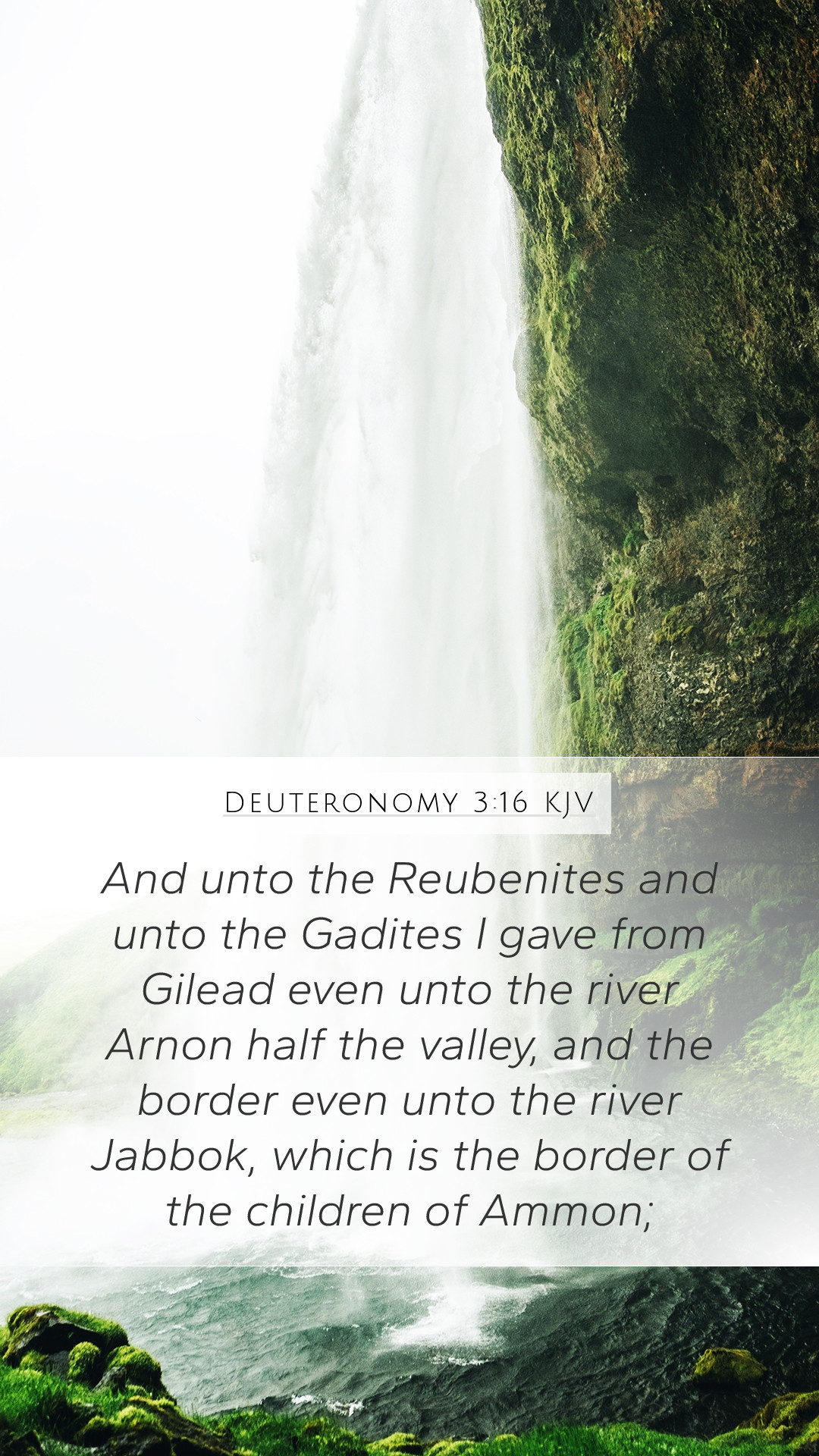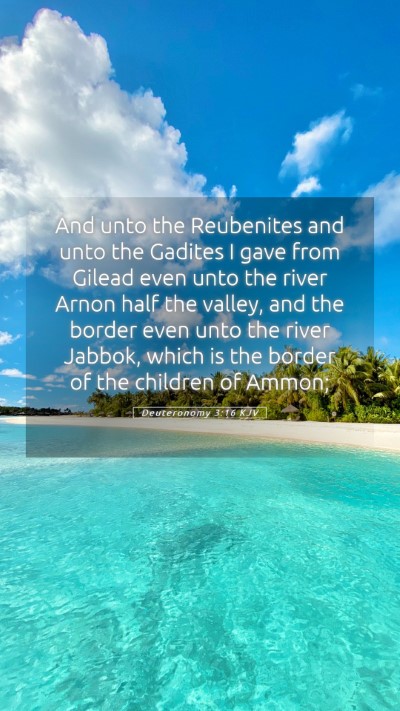Understanding Deuteronomy 3:16: A Comprehensive Bible Verse Commentary
Deuteronomy 3:16 states, "And unto the Reubenites and unto the Gadites gave I the land of Gilead even unto the river Arnon half the valley, and the border even unto the river Jabbok, which is the border of the children of Ammon." This verse highlights the distribution of land among the tribes of Israel, specifically focusing on the Reubenites and Gadites.
Contextual Background
As part of a larger discourse, this scripture provides insight into the conquest of the Promised Land. The Israelites have been wandering for years, and as they prepare to enter Canaan, Moses divides the land among the tribes that have settled east of the Jordan River. This distribution is significant, as it reflects God's promise and fulfillment of His covenant with the Israelites.
Biblical Exegesis and Interpretation
According to Matthew Henry, this land allocation is an important marker of God's faithfulness to His people. Henry notes that the mention of specific geographical boundaries not only serves to establish ownership but also emphasizes the importance of each tribe's inheritance as part of the collective covenant with God.
Albert Barnes expands on this idea by highlighting the significance of the River Arnon and the border of Ammon. He emphasizes the historical context wherein these rivers served as natural boundaries, crucial for understanding tribal territories. The selection of Gilead as a part of their inheritance is indicative of God's detailed planning and foresight as reflected in the Scriptures.
Adam Clarke further elaborates that the mention of the Gadites and Reubenites reflects a division that illustrates the socio-political landscape during the Israelites' settlement. Clarke reminds us that these verses are not just historical accounts but serve to provide lessons on adherence to God's commands and the understanding of entitlement within the biblical narrative.
Thematic Elements
- Divine Allocation: This verse serves as a testament to God's specific and purposeful distribution of land among His people.
- Promise Fulfilled: It represents the fulfillment of God's promise to give the Israelites a land of their own.
- Historical Context: Understanding the geographical layout aids in comprehending the larger narrative of Israel's history and their relationship with surrounding nations.
Application of the Verse
Deuteronomy 3:16 invites readers to reflect on how God leads His people and provides for their needs. For modern believers, this can translate to recognizing God's guidance in life decisions and appreciating the inheritances—both spiritual and material—that are bestowed upon them.
When engaging with this verse in a Bible study group, one can explore the implications of land ownership and responsibility, as well as the significance of being in the right position to receive God's blessings.
Cross References
- Numbers 32:1-5: This passage discusses the requests of the tribes of Reuben and Gad to settle in Gilead.
- Joshua 1:12-15: Here, the emphasis is laid on the agreement made by these tribes regarding the conquest of the land.
- Deuteronomy 2:24-37: In this text, previous conquests are outlined, providing context for the land distribution.
Conclusion
In summary, Deuteronomy 3:16 encapsulates critical themes of inheritance, divine promise, and historical significance within the biblical narrative. By engaging with public domain commentaries, readers gain a deeper understanding of Scripture and can appreciate the richness of the text in relation to the broader themes of God’s covenant with His people.


